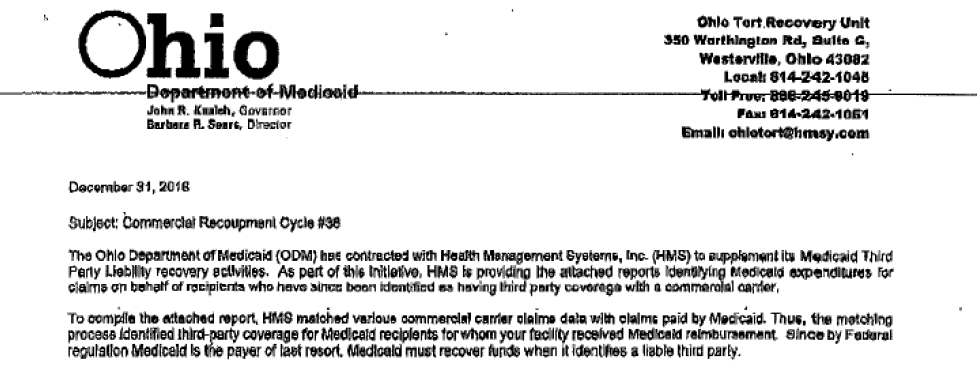Posted by Behavioral Health Billing Solutions, LLC.

I think it’s time to really discuss the issues related to Third Party Liability and Ohio Behavioral Health. (Ohio BH and TPL)
Beginning January 2018, Ohio Department of Medicaid (ODM) turned on the adjudication of third party liability for Ohio Behavioral Health Agencies in order to comply with National requirements. Prior to that time, agencies were requested to bill third party (if they were aware) but not required in order for claims to process through ODM. Issues became apparent almost immediately.
1. The MITS system did not accurately reflect third party liability and in many cases, the information was inaccurate or outdated.
2. Many agencies either did not know about the change due to poor communication OR their systems did not enable them to easily bill third party.
3. 5 years ago, Ohio BH agencies went to billing MITS directly and we were given specific information on how to bill secondary claims and specifically, how to deal with claims billed to third party that we did not receive a response to. In Ohio, the requirement for years has been bill third party 3 times in a 90 day period and if you do not receive a response, bill it second to ODM. In the past, we used an R for No Response. With the change to billing MITS directly, we were advised to use CO96.
Then the Managed Care carve in happened along with the requirement to register ALL providers, licensed and unlicensed. In addition, we were required to bill ALL providers billing a CPT code to third party first. This is when it began to fall apart on a larger scale. Why?
1. Dependent and unlicensed providers cannot be paneled with insurance. Therefore, when the claim is billed, you don’t receive an EOB, or in most cases, you don’t receive a response at all. Best case, you get a letter asking who the heck is providing this service.
2. Since we now have to bill the MCO if a client is signed up with one, it was quickly discovered that each MCO has different third party liability information than ODM. Agencies have been advised to go by the MCO and not try to cross reference to ODM, essentially confirming that the process was broken.
3. Many MCO’s have decided CO96 is not a reimbursable adjudication for secondary claims. During discussion with ODM, they denied the original guidance to utilize that COB combination without a physical explanation of benefits. They stated if agencies followed that process, they were concerned that in the case of an audit, it would be determined fraudulent.
Recently, Behavioral Health Billing Solutions (BHBS) became aware through a client, that ODM has been sending out letters notifying agencies of recoupments for claims billed and paid as primary when retrospectively, they determined the client had third party liability. An example of the letter is available here. Let’s talk about this a bit more in detail.

1. Many advocates for agencies, including BHBS, have been pleading with ODM to turn off the adjudication for TPL since the process was broken. This request has been considered and yet now, 4 months (Jan 2018 – April 2018) are outside of timely filing and the adjudication still exists. Essentially, we asked them to make an investment in the BH agencies in Ohio and it’s still being “considered”.
2. To better explain the recoupment process mentioned above, ODM decided to contract with an organization, HMS, to look at paid primary claims and determine if third party liability existed. If TPL was found, they recouped the payment and sent a letter to the agency asking them to prove they billed the TPL. Since the claim was billed as primary to ODM, agencies cannot prove they billed TPL because neither the agency or ODM was aware of it when the claim was billed and paid.
So instead of investing in Ohio by removing the adjudication until the process was fixed, they decided to invest in this process, which takes even more money from the agencies in Ohio. FYI, the letter demonstrates that they knew the process was broken, so broken, they had to contract with someone to find TPL they didn’t have and yet, the adjudication remains in place.
So what needs done to correct this process and put money back in the hands of the agencies in Ohio?
1. Turn off the adjudication of TPL until the verification process of TPL is corrected and rolled out between ODM and the MCO’s.
2. Backdate timely filing for claims to January 1st, 2018 allowing agencies to re-bill for denied claims due to TPL.
3. Remove the requirement to bill dependent and unlicensed providers to TPL. For that matter, remove the requirement to register them. I’m unaware of any other state that requires unlicensed providers to be registered, neither should Ohio.
